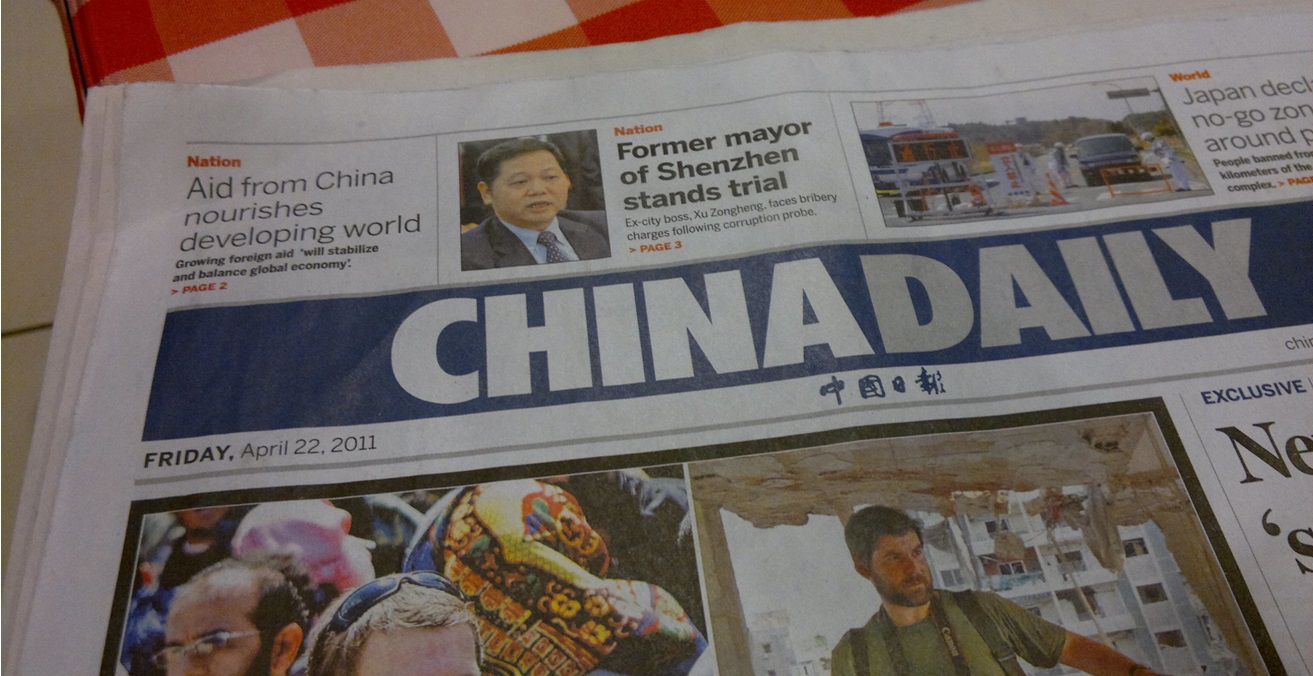Providing “Chicken Soup for the Soul”: Chinese State Media and How to Read It

Compartmentalisation and differentiation are key features of Chinese official media. Their different branches carry different missions.
For observers of China from both within and abroad, one question that is often asked is what is Hu Xijin, the former editor of the Global Times, saying, and what are the political implications of his words? Hu Xijin is one of the most vocal defenders of the Chinese state on social media across “foreign” platforms such as X (Twitter) and domestic ones such as Sina Weibo. Due to the special position of the Global Times in China’s propaganda system, many readers suspect that Hu Xijin’s posts have far greater importance than other media voices inside the mainland.
The uncertainty reflected in such suspicion, in fact, is a conscious strategy employed by China’s propaganda system, and the Global Times has indeed been used as a channel for issuing deliberately vague signals. The Global Times is a commercial outlet affiliated to China’s most important official newspaper, the People’s Daily. This means it is self-financed and responsible for developing its own strategy to attract audiences in the information market. However, the “directions” of its reporting are mostly given by the state propaganda system, and the People’s Daily reserves the right to instruct its subordinated outlets to write on specified topics. Hence, if the Global Times condemns certain foreign countries or comments on certain social issues, it may (or may not) signal the intentions of the Chinese state. These signals are thus more ambiguous than if the same words appear in more serious official media such as the People’s Daily, and are used to address issues that the People’s Daily feel are more sensitive.
This interesting relationship between the People’s Daily and the Global Times explains the inner differentiation within China’s propaganda system. Various outlets, as well as their presence on various platforms, are assigned different roles and positions when they speak to the public. Generally speaking, there are two dimensions of differentiation. First, different outlets have different “levels of importance.” The People’s Daily, together with the Xinhua Agency and CCTV News, is located at the top, usually directly representing the party-state. Other official outlets, such as the Enlightenment Daily and the Economy Daily, while still official media, are one level below in the tiered list of authority. The Global Times, as mentioned, is yet lower in authoritativeness, thus able to send deliberately ambiguous signals.
In addition to the more traditional ladder of authority, the differentiation between different channels of distribution, namely print media and social media, has become more important. In fact, these two forms of propaganda have fundamentally different purposes.
Official print media carries two major roles. The first is to send political signals to the outside world or to society. The second is related to the more abstract aspects of the CCP’s ideology. Since the October Revolution (and even before that), Communist movements have been obsessed with being on the “correct side of History.” After all, the notions of a correct “line” or the “socialist path” both hint to the one-directional movement of History. In China today, official newspapers are the proof of such correctness. For this reason, official print newspapers do not write their own stories. The topic that they write on must be “something that will remain in history,” as put by an editor. As for the wording, a general rule in official newspapers is that every line must have a “source”; Xinhua Agency’s news bulletins, something that has appeared in the People’s Daily before, or better yet, political leaders’ published speeches. It is thus not uncommon for newspaper editors to compose their articles by collecting political leaders’ lines. As one editor said to me: “Newspapers leave a record.”
The social media accounts of official outlets, meanwhile, aim at building popularity. Instead of the correctness of each single word, the “new media department” of official media is evaluated by the “data traffic” they attract – the numbers of likes, reposts, comments, and other more subtle quantified data (such as the percentage of readers who finish reading among all readers). As one official media employee told me, “If the restrictions on the main [print] newspaper are at level 9 or 10, those on new media are at 4 or 5.” As long as the general “direction” of their content is correct, they can design various strategies to attract the audience.
Hence, rather than the monotonous repetition of the “official language,” official outlets on social media have developed diverse styles, some of which have become their signatures among followers. Some outlets have attracted fame with their unique “persona,” or “character design,” in which they talk to the audience as a virtual character, a friend. One example is the social media account of the People’s Daily Overseas Edition, named Xiake Dao (literally meaning “Ranger Island”). They are specialised in writing short commentary articles about social events, and in their articles the writers frequently call themselves “Uncle Dao.” This virtual persona is described as such by a former employee: “(It is) like a kindly uncle you encounter on your trip who warmly chats with you about news happening around you.”
Even when the outlet does not have a specified persona on paper, as put by another official media employee, “It is always most important to think about having a conversation with the readers.” This, of course, does not mean that the readers can actually communicate with the state mouthpieces on equal footings. However, official “new media” do make great efforts to appear approachable and likeable, and to hide their authority deep behind their articles and/or videos.
Another typical example of such “conversation” is the “late-night reading” segment of multiple official new media, including the People’s Daily. These are usually classified by their colleagues in the media industry as “chicken soup for the soul,” meaning that they do not provide substantive information, but instead try to offer emotional support. It is mostly based on conservative moral values and offers a placebo for those who struggle with everyday life and work by telling them not to give up when meeting challenges, to listen to their elders when facing problematic family relations, and not to blame others when facing inequity. According to multiple editors, such chicken soup has received positive feedback from the readers, and these official outlets even receive many letters and messages from the readers expressing their gratitude for the soup.
Yet it is important to note that such approachableness comes hand in hand with authority, even though the latter is deliberately hidden in the writing. One example in official new media is “heartwarming videos” about soldiers and police, such as policemen playing with children who salute them on the street. In these videos, the policemen appear approachable and likeable to citizens, but the videos are posted only because they showcase the police – operators of state power. The same logic applies to the various personae of official outlets on social media. When they tell people to accept the status quo, it is not only emotional support, but implicitly moral education as well.
As official media adjusts to the information environment of the internet age, their positioning within the information market has also become more subtle, and their discourses more complicated. It also needs to be noted that such development of propaganda is not a uniquely Chinese thing. In fact, some media employees told me that they consciously and actively learn from the styles of populist mass media in the West, such as Fox News and Daily Mail. In our current world, information not only connects people, but also power and plots.
This article is adapted from an academic article by the same author. The Ideology is Blowing in the Wind: Managing Orthodoxy and Popularity in China’s Propaganda, Political Communication (2023), DOI: 10.1080/10584609.2023.2290492
Dr Clyde Yicheng Wang is an assistant professor in politics at Washington and Lee University in Lexington, VA. His research focuses on China’s propaganda system and ideology.
This article is published under a Creative Commons Licence and may be republished with attribution.




